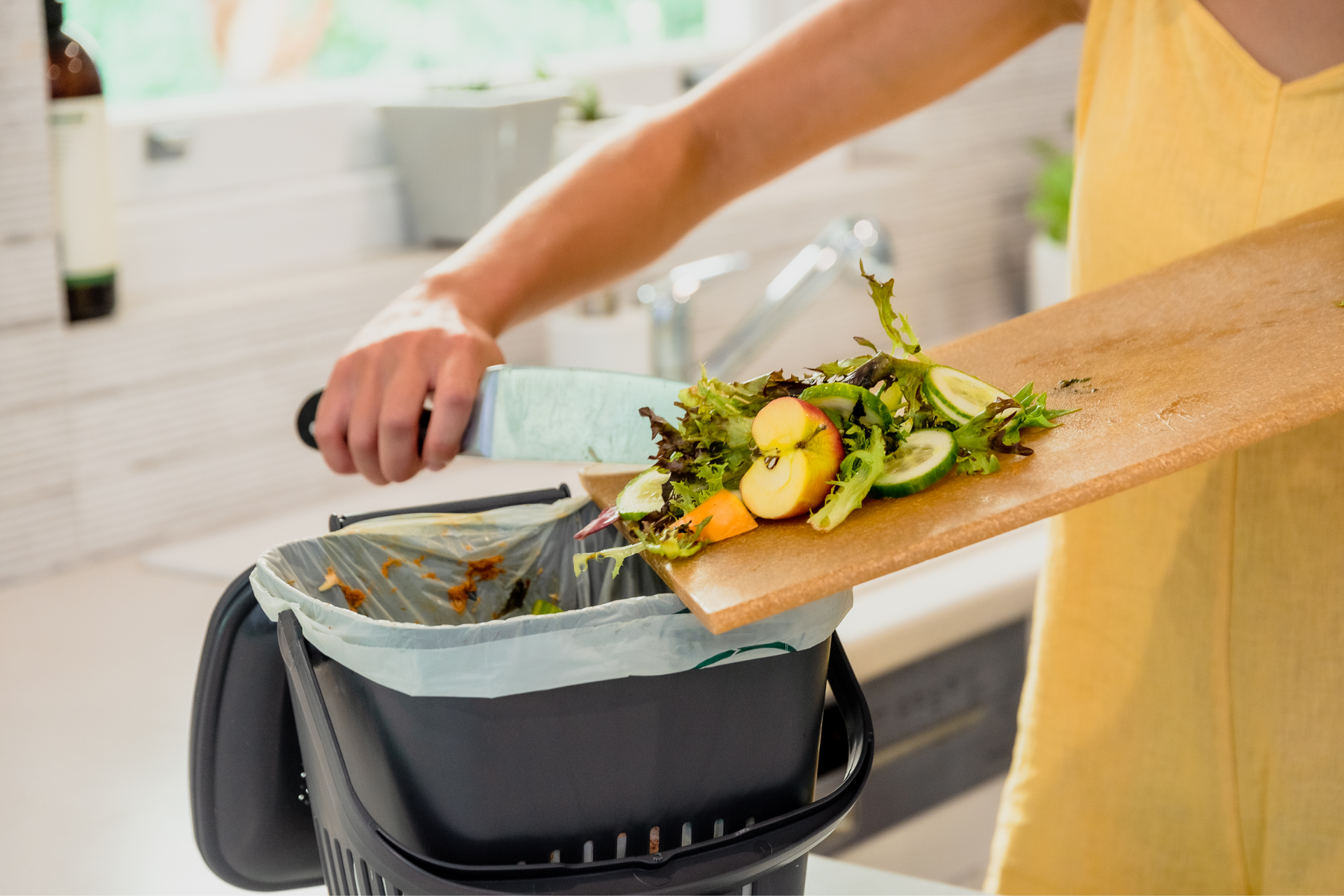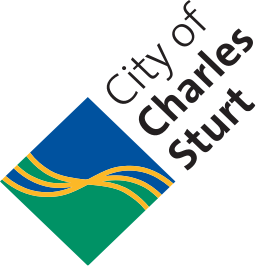It's easy to recycle your food waste and stop it going to landfill.
Food scraps make up around 30% (by weight) of household rubbish. When food breaks down in landfill, it releases harmful greenhouse gases. These gases contribute to climate change.

Use a kitchen caddy and compostable bags
Using a kitchen caddy with compostable bags is an easy and efficient way to recycle food scraps. Your kitchen caddy can live on the benchtop or under the sink. When it's full, tie off the compostable bag and place it directly into your green organics bin. It will then be sent to a commercial composting facility and turned into high quality compost.
All food scraps can go in your kitchen caddy, as well as lawn clippings, weeds and garden prunings. Find out how to use your kitchen caddy and compostable bags.
Please note, only bags clearly marked as compostable AS 4736 are certified and suitable to go in your green organics bin. Plastic bags, and bags that are labelled degradable, are not suitable as they don't break down in compost.
Get your free kitchen caddy
You can get your free ventilated kitchen caddy and roll of compostable bags delivered to your house or you can collect one during business hours at our Civic Centre (Woodville) or any of our five Libraries, just bring some ID to show you are a Charles Sturt resident.
Get your kitchen caddy delivered
Run out of compostable bags?
You can get these delivered too or collect from our Civic Centre (Woodville) or any of our five Libraries.
Worm farms are a great alternative to composting for people with small gardens. Worm farms can be kept inside, outside, on a balcony or in the shed. Worm farms are an excellent way of dealing with most food scraps.
Worms are voracious eaters and will eat most food scraps.
Worms do not like:
- meat
- onions, garlic and shallots
- citrus
- acidic food like tomato and pineapples
Put these foods in your green organics bin instead.
Read more about how to make a worm farm.
Home composting is a natural and efficient way to recycle food scraps. It gives you a free high-quality resource for your garden, making it more water efficient and adding rich nutrients to the soil.
Home composting is easy to do, cheap and provides many benefits for the environment and your garden.
You can compost most food scraps except meat, fish and bones. These don't break down in your home compost and can attract pests. Put them in your green organics bin instead.
Read more about how to make a home compost.
We have a recipe finder that helps you get the most out of every meal and ingredient in your kitchen. It will save you time and money and reduce your household waste by using up ingredients you already have.
